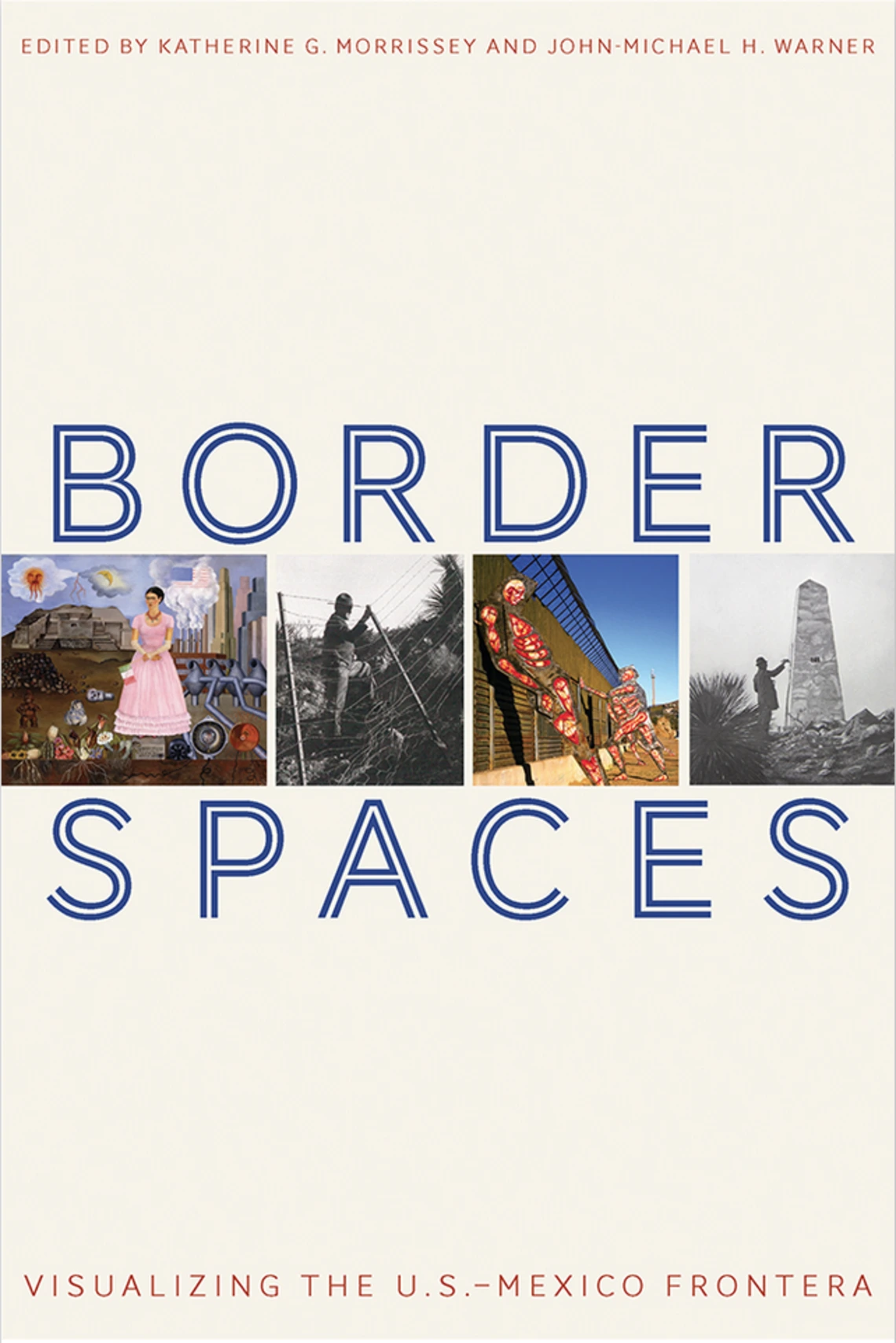
Publisher
University of Arizona Press
The built environment along the U.S.-Mexico border has long been a hotbed of political and creative action. In this volume, the historically tense region and visually provocative margin—the southwestern United States and northern Mexico—take center stage. From the borderlands perspective, the symbolic importance and visual impact of border spaces resonate deeply.
In Border Spaces, Katherine G. Morrissey, John-Michael H. Warner, and other essayists build on the insights of border dwellers, or fronterizos, and draw on two interrelated fields—border art history and border studies. The editors engage in a conversation on the physical landscape of the border and its representations through time, art, and architecture.
The volume is divided into two linked sections—one on border histories of built environments and the second on border art histories. Each section begins with a “conversation” essay—co-authored by two leading interdisciplinary scholars in the relevant fields—that weaves together the book’s thematic questions with the ideas and essays to follow.
Border Spaces is prompted by art and grounded in an academy ready to consider the connections between art, land, and people in a binational region.
Publication ISBN
9780816539468

